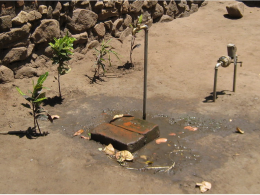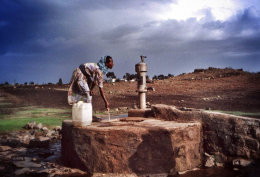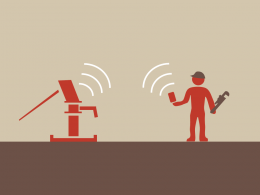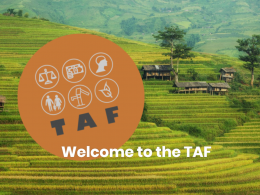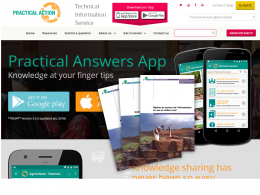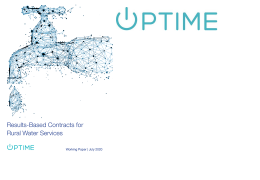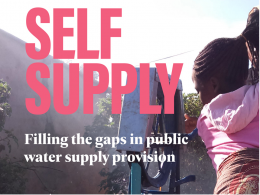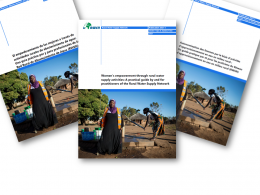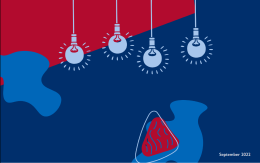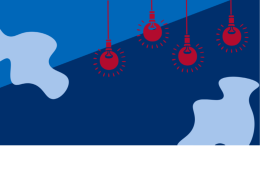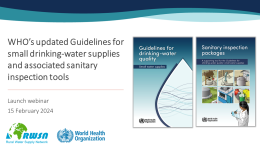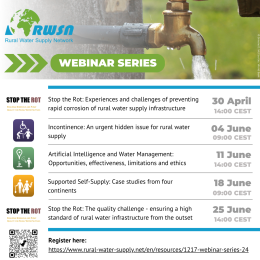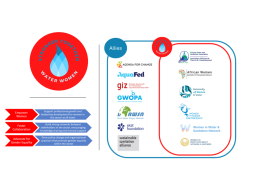Highlights of RWSN's projects, partnerships and knowledge products
Collaborations
Safe Water: monitoring, data and decisions
Une eau potable gérée en toute sécurité: surveillance, données, décisions
Project start: 2019 • Project finished: -
Collaborators: University of North Carolina, RWSN
Funder:
Summary
New partnership between RWSN and The Water Institute of UNCNouveau partenariat entre RWSN et le Water Institute à UNC Chapel Hill
We are excited to announce a new partnership between RWSN and The Water Institute at UNC Chapel Hill. This partnership will leverage the RWSN platform and The Water Institute’s expertise in water quality and management to bring up-to-date evidence and methods to the members of the network. As a new Topic Leader in Mapping and Monitoring,
The Water Institute aims to bring evidence and practice closer by facilitating lively discussion and producing practical guidance on Safely Managed Water. The new partnership will begin in 2019, so look out for The Water Institute’s new weekly Mapping Monday posts in the RWSN Mapping and Monitoring online community in the New Year!
Nous sommes ravis d'annoncer un nouveau partenariat entre RWSN et le Water Institute à UNC Chapel Hill. Ce partenariat s’appuiera sur la plateforme RWSN et sur l’expertise du Water Institute en matière de qualité et de gestion de l’eau pour apporter des données et des méthodes scientifiques de pointe aux membres du réseau. En tant que nouveau responsable du Thème cartographie et de surveillance, The Water Institute a pour objectif de rapprocher la science et les pratique en facilitant une discussion animée et en produisant des conseils pratiques sur une eau gérée de manière sûre. Le nouveau partenariat débutera en 2019, alors ne manquez pas les nouveaux articles hebdomadaires intitulés Mapping Monday du Water Institute dans la communauté en ligne RWSN dédiée à la cartographie et au suivi !
Myths of Rural Water Supply
Learning from past failures, building on successes
Project start: 2010 • Project finished:
Collaborators: UNICEF, Skat, WaterAid, Water & Sanitation Program, African Development Bank, Swiss Development Cooperation
Funder:
Summary
Ensuring that rural dwellers around the world do not have to walk for hours to collect sufficient and safe drinking water is a huge challenge. In 2010, RWSN published "Myths of the Rural Water Supply Sector" which raises issues for those of us who are involved in trying to improve rural water supplies, whether as donor, Government or NGO; program manager or practitioner. It takes a hard look at our limited achievements, points to areas where our approaches need to be radically improved and sets some challenges.
'Smart Handpumps'
Handpumps can be better - who is leading the way?
Project start: • Project finished:
Collaborators: Several
Funder: Several
Summary
Drilling a borehole and installing a handpump is a common way to improve access to water for rural (and urban) people in many parts of the world. However, the failure of these water points is shockingly high, a third in many African and Asian countries and often much higher.New communications technology is opening up the possibilities for 'Smart Handpumps' - handpumps that actively record how and when they are used and transmits that data to an organisation who can use that information to (a) mobilise targeted maintenance and repairs; (b) identity priority areas for future improvements and investments; (c) to understand the user needs better, and main other reasons that shift rural water supply away from 'fire-and-forget' projects and towards water services that last and that reach everyone.
Technology Applicability Framework (TAF) & Technology Introduction Process (TIP)
WASHtechnologies.net
Project start: 2011 • Project finished:
Collaborators: Skat Foundation, WaterAid, GIZ. The WASHTech consortium consisted of IRC WASH, WaterAid, Cranfield University, Skat Foundation, WSA, TREND, KNUST and NETWAS
Funder: Currently un-funded
Summary
The TAF is a tried-and-tested way of helping organisations improve their understanding of whether a technology that is designed to tackle a Water, Sanitation and Hygiene (WASH) problem will work in a particular context. This improved understanding can be used to support decisions on:1. Whether or not to invest or support the introduction of Technology X in Context Y
2. Whether or not to continue to invest, support or approve the introduction of Technology X in Context Y
3. Is Technology X ready to scale-up? And what are context-sensitive factors that may play a major role in the success or failure of widespread promotion and uptake?
Although the TAF was developed for WASH technologies, it can be used for any type of technology or product, and has been adapted by others for renewable energy technologies.
RWSN Publications - now on Practical Answers
RWSN Publications - maintenant sur Practical Answers
Project start: 2018 • Project finished:
Collaborators: RWSN, Practical Action
Funder: SDC
Summary
To help rural water professionals get access to the inform they need, RWSN has teamed up with Practical Action to make some of our leading publications available on the Practical Answers website and mobile App.Let is know if there are any particular resources or publications that you would like to have on this platform.
Pour aider les professionnels de l’eau en milieu rural à accéder aux informations dont ils ont besoin, le RWSN s’est associé à Practical Action pour rendre certaines de nos principales publications disponibles sur le site Web de Practical Answers et l’application mobile.
Indiquez s'il existe des ressources ou des publications particulières que vous aimeriez avoir sur cette plate-forme.
Uptime: Delivering Reliability for 100 Million People by 2030
Temps de fonctionnement : Garantir la fiabilité à 100 millions de personnes d'ici 2030
Project start: • Project finished:
Collaborators: FundiFix, Water for Good, Water Mission, UDUMA, Whave, Oxford University
Funder: GIZ, Osprey Foundation
Summary
Uptime is a global consortium working to deliver drinking water services to millions of rural people through long-term, performance-based funding to achieve Sustainable Development Goal 6.1.
New Book: Self-supply - Filling the gaps in public water supply provision
Project start: 2021 • Project finished:
Collaborators: Dr Sally Sutton (Ind), Dr John Butterworth (IRC), Practical Action Publishing
Funder: IRC, SWL Consultants
Women’s empowerment through rural water supply / Autonomisation des femmes par le biais d’activités d'approvisionnement en eau en milieu rural
A practical guide / Un guide pratique / Una guía práctica
Project start: 2020 • Project finished:
Collaborators: RWSN Members from the Leave No-one Behind Community
Funder: SDC
Summary
This practical guide is the result of a consultation and co-creation process with members of the Rural Water Supply Network (RWSN). Engineers and gender experts have come together to overcome jargon barriers from their respective disciplines. This guide aims to pro-vide water specialists with the language and knowledge on how best to work with gender experts to build more transformative activities.Ce guide pratique est le fruit d'un processus de concertation et de cocréation avec les membres du réseau d’approvisionnement en eau en milieu rural (Rural Water Supply Network, RWSN). Des ingénieurs et des spécialistes des questions de genre se sont réunis pour faire tomber les barrières du jargon de leurs disciplines respectives. Ce guide a pour but d'apporter aux spécialistes de l'eau le langage et les connaissances sur la meilleure façon de travailler avec des spécialistes des questions de genre pour élaborer des activités plus transformatrices.
Esta guía práctica es el resultado de un proceso de consulta y de co-creación con miembros de la Red Rural de Abastecimiento de Agua (RWSN). Ingenieros y expertos en género se han unido para superar las barreras que supone la jerga de sus respectivas disciplinas. Esta guía tiene como objetivo proporcionar a los especialistas en agua el lenguaje y el conocimiento sobre la mejor manera de trabajar con expertos en género para construir actividades más transformadoras.
Technological Innovations for Rural Water Supply in Low-resource Settings
CHALLENGES OF RURAL WATER SUPPLY
Project start: • Project finished:
Collaborators: Aquaya Institute, Aguaconsult, ATREE, KNUST, RWSN, Skat Foundation, Safe Water Network, Water Mission
Funder: USAID
Summary
Globally, the Sustainable Development Goals (2015–2030) are driving efforts to increase water service levels, while ensuring that services are affordable and no vulnerable population is left behind. In concert with global development goals, the United States Agency for International Development (USAID) Rural Evidence and Learning for Water (REAL-Water; 2021–2026) program focuses on identifying ways to expand water access and safety in rural areas of low- and middle-income countries. Rural areas pose special challenges for water supply, as homes may be too few or too dispersed to justify the cost of installing underground pipes from a high-quality water supply source or a centralized drinking water treatment facility. As of 2020, the majority of people lacking even basic water services (i.e., water from a protected source requiring no more than 30 minutes to collect) lived in rural areas.
Financial Innovations
for Rural Water Supply in Low-Resource Settings
Project start: • Project finished:
Collaborators: REAL-Water consortium members: The Aquaya Institute, Aguaconsult, the Kwame Nkrumah University of Science and Technology (KNUST), the Skat Foundation’s Rural Water Supply Network (RWSN), Safe Water Network, and Water Mission.
Funder: USAID
Summary
Millions of people in rural areas of low- and middle-income countries still lack access to basic water services. In fact, as of 2020, the majority of people without basic water services lived in rural areas. The United States Agency for International Development (USAID) Rural Evidence and Learning for Water (REAL-Water) program is working to address this issue by identifying ways to expand water access and safety in rural areas.One of the challenges of providing rural water supply financing is that the populations are smaller, more dispersed, and poorer than their urban counterparts. This may reduce opportunities for economies of scale and complete cost recovery. To overcome these challenges, the REAL-Water program is focusing on identifying innovative and promising financing or funding mechanisms that can be used in small villages and dispersed settlements.
WHO’s updated Guidelines for small drinking-water supplies and associated sanitary inspection tools
Launch: 15 February
Project start: 2024 • Project finished:
Collaborators: WHO, RWSN
Funder: WHO
Summary
#Webinar alert! World Health Organization and RWSN - Rural Water Supply Network will hold a global webinar on 15 February to launch WHO's updated Guidelines for drinking-water quality: small water supplies, and the associated Sanitary inspection packages – a supporting tool for the Guidelines for drinking water quality: small water supplies.These publications build on over 60 years of guidance by WHO on drinking-water quality and safety, and together update and supersede WHO’s 1997 guidance addressing the surveillance and control of community supplies. The new publications provide practical guidance for progressive improvements towards safe and sustainable drinking-water services for people served by the full diversity of small water supplies.
In this session, participants will gain awareness of key features of the Guidelines and tools, exchange with experts and practitioners on implementing the recommendations and guidance, and gain insights into upcoming efforts to further support implementation of the guidance.
RWSN Early Webinar Series 2024
April - June 2024
Project start: • Project finished:
Collaborators:
Funder:
Summary
The series featured two webinars of the Stop the Rot initiative, and webinars from the Leave No-one Behind, Data for Action, and Self-Supply themes.Stop the Rot: Experiences and challenges of preventing rapid corrosion of rural water supply infrastructure
30 April, 14:00 CEST
Rapid handpump corrosion and the underlying causes have been known for decades, and yet still occur. This webinar presented a World Bank technical note that calls for the prevention of rapid corrosion through regulation alongside experiences from Uganda and Zambia.
Incontinence: An urgent hidden issue for rural water supply
4 June, 09:00 CEST
This webinar by the RWSN Leave No-one Behind theme raised awareness of the need to pay attention to the needs of people living with incontinence across all ages. This webinar enabled RWSN members and attendees to understand the issue of incontinence and why it matters for rural water supply.
Artificial Intelligence and Water Management: Opportunities, Effectiveness, Limitations and Ethics
11 June, 14:00 CEST
This webinar by the RWSN Data for Action theme introduced network members to the opportunities that AI can bring to water management challenges of the 21st century by sharing practical examples of AI applications in rural water supply. However, the webinar also highlighted any limitations and ethical issues members need to be aware of before using AI by sharing real-world examples of AI’s limitations and/or ethical grey areas.
Supported self-supply: case studies from four continents
18 June, 09:00 CEST
Self-supply exists in almost all countries around the world and in specific times and areas can be the dominant form of service provision. Nevertheless, information on this approach typically is scattered and hard to find – mostly due to the passive role of government and the lack of reporting/monitoring mechanisms. This webinar by the RWSN Self-Supply theme explored the case studies of formal programs to support self-supply from four continents.
Stop the Rot: The quality challenge - ensuring a high standard of rural water infrastructure from the outset
25 June, 14:00 CEST
Poor quality infrastructure continues to be a problem in rural water supplies. This webinar provides a platform to discuss the issue, including looking at some of the types of quality problems encountered and experiences of several organizations who have managed to consistently procure quality components.
Celebrating the life of Louisa Gosling
Project start: • Project finished:
Collaborators:
Funder:
Summary
It is with deep sadness that we inform our members and partners of the passing of Louisa Gosling, former Chair of the RWSN Executive Committee (2019-2022), former Theme Leader of the Leave No One Behind theme (2011- 2021), and a great champion of Human Rights to water and sanitation.Louisa was an inspiration for many, including the younger generation of WASH professionals at the early stages of their career. For those who were fortunate enough to have had the opportunity to work with her in person, Louisa always taught them something new each time, and was never afraid to challenge - always politely - in a way that got people thinking more deeply, more widely and profoundly... Louisa was exceptionally engaged with and a constant source of support for professionals as the field of equity and inclusion evolved and new topics emerged. Her open-minded nature was one of the critical catalysts of the fast-paced progression of efforts to leave no one behind in the WASH sector globally, which clearly shone through her work for RWSN, whether it be through leading webinars, or her passionate involvement in RWSN online discussions. Louisa had a constant presence in the working lives of inclusion experts. She actively made efforts to ensure that the younger generation of professionals had a voice, striving to constantly give them a platform, whether it be through actively involving them as part of conference workshops to encouraging them to write about their work far and wide on platforms ranging from the SuSaNA forum through to WaterAid’s WASH Matters blog.
Her first-hand experience on the ground working with marginalised groups over the years shaped her leadership of the RWSN Leave no one behind theme, leaving an unparalleled legacy for theme leaders who would follow in her footsteps in years to follow.
You can follow Louisa’s funeral and memorial, and share your condolences with her family using the link below.
Stronger Together! Coalition
Water Women
Project start: • Project finished:
Collaborators:
Funder:
Summary
Water and WomenAchieving Sustainable Development Goal (SDG) 6 for Clean Water and Sanitation, as well as SDG 5 on Gender Equality needs a holistic and systematic approach. This includes understanding the workforce behind the water resources and WASH systems sector, as skill shortages continue to affect the lack of progress on these SDGs. Data reveals that women only make up 21% of jobs in water utilities (1) and are under-represented in terms of participation at all levels in the sector (2). Visible and invisible barriers continue to hinder women to engage, develop, and fulfill their careers. This means that not all potential contributors are engaged, which leads to negative impacts, such as missing out on diverse thinking, creative solutions, and the improvement of overall sector performance. Therefore, it is necessary to advocate and work towards a strong, gender-equitable sector for water resources and WASH systems.
(1) World Bank Water Data
(2) Taking Stock of Progress Towards Gender Equality in the Water Domain (2021)
 Google Übersetzer
Google Übersetzer

